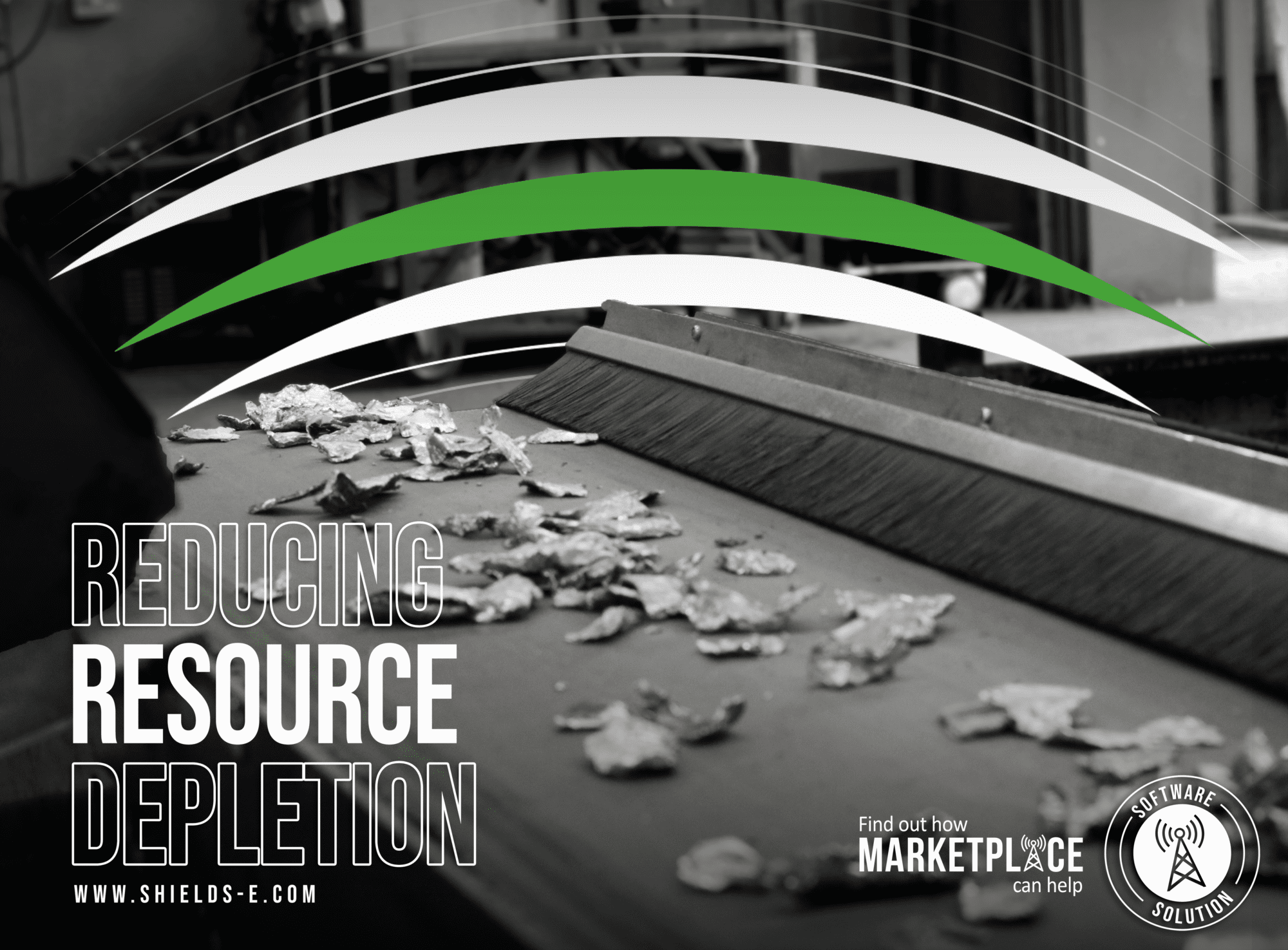Our CEO Daniel Jones discusses how the circular economy supports the reduction of resource depletion and the development of clean energy. Read on to find out how our MarketPlace software solution can help.
The circular economy has a key role in mitigating both resource depletion and climate change. This discussion focuses on the perspective of natural elements, and introduces what benefits can be achieved through MarketPlace, a digital platform powered by Shields to support this industry to establish a more sustainable working mode.
Starting from resource depletion. The manufacture of telecommunication network assets and equipment requires the extraction of certain raw materials such as zinc, nickel and copper. These elements have all been identified as being of different levels of endangerment by the European Chemical Society, with zinc being labelled “at serious threat”. Other metals that commonly exist in telecommunication network equipment such as copper and palladium also face a rising threat.
When it is considered that around 800 kilotons of telecommunication network equipment is purchased each year, the need to reduce reliance on these precious natural resources becomes clear. By investing in the circular economy, existing resources can be reused and refurbished which will limit the need to extract further materials and reduce the risk of resource depletion.
The second benefit of circular economy is to combat climate change. Apart from the benefit of limiting scope 3 emissions, another climate benefit that is less mentioned but certainly critical is to support the development of clean energy technology, which is at the core of climate action. The International Energy Agency (IEA) has reported that the implementation of greener power sources may require substantially more minerals than their fossil fuel-based counterparts that “an onshore wind plant requires nine times more mineral resources than a gas-fired plant’’.
Among the elements with a large demand from clean energy technology, are metals such as copper, nickel and zinc which are commonly found in network equipment. Rather than being fully reliant on raw material extraction which is not only a limited supply, but also with high ESG risks such as human rights abuses. Telcos can indirectly alleviate the resource needs in clean energy technology transition, by keeping network equipment in the supply chain through reuse, refurbishment, and effectively recycling at its end of life.
How MarketPlace can help
MarketPlace is an innovative cloud-based inventory management platform that offers telecommunication network operators the opportunity to invest in the circular economy. This revolutionary software provides operators with enhanced visibility of their existing assets as well as available refurbished and repaired stock from the wider market. So that network providers can procure tried and tested items that are already in circulation. This reduces the reliance on new assets being produced by the original equipment manufacturer (OEM) and increases reliability. As the equipment has already been proven to work in a live environment and undergoes our above and beyond testing which furthers the initial OEM testing standards. That’s why we always give an additional warranty too.
This alternative buying strategy may lower the number of items that need to be manufactured each year which could help to reduce the carbon emissions associated with the telecommunication industry. In addition, by refurbishing and reusing equipment, there will be less need for newly extracted minerals and metals which will help to lower the global risk of resource depletion and support the smooth development of clean energy without placing excessive burden on the planet.
Find out more about MarketPlace solution here.


